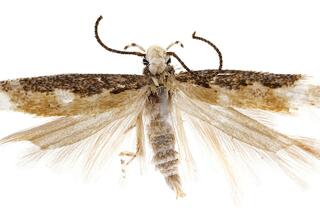When One Good Term Deserves Another
- Share via
Judy van Wingerden, “a tulip-sniffing, wooden-shoe wearing American” who works in downtown Los Angeles, writes:
As a “Dutch-American” (I actually have never used the term before) I have thought about the phrase Dutch treat, but frankly never considered it in any way offensive . (Well, it did kind of bother me when a date brought it up the other evening . ) So please, if you’re taking a vote, you have my permission to continue to use this “progressive” term.
As an editor, however, I do take offense to the implication behind the paragraph about The Times editors and their attempt to assist you in “navigating the verbal minefield.” Editors have been persecuted and abused for generations and we’re not going to just stand by and take it anymore. . . .
*
Sheesh. First the attorneys want to make lawyer jokes a crime. Now editors are complaining of persecution? If you want abuse, Ms. van Wingerden, try being an editee.
Let’s hope she is joking. Ms. van Wingerden was one of several readers who responded to a recent column that warned that the would-be godfathers of political correctness have put out contracts on such useful phrases as Don Juan and Dutch treat. ( Don Juan , they argue, smears all Latino men as wanton womanizers. Dutch treat accuses a people of cheapness.)
How I had hoped to pick a fight with the tulip sniffers, but it turned out I was just, ahem, tilting at windmills. Not a soul lectured me like a Dutch uncle, and a few proudly noted that “Dutch courage” refers to the boldness inspired by alcohol. Pam Den Hartog of Hollywood said “hard-headed Hollanders” are legendary for their stubbornness. “I bought my Dad a bumpersticker . . . that says, ‘You can always tell a Dutchman, but you can’t tell him much.”
Perhaps that is why the Dutch don’t realize they’re supposed to be offended. Perhaps I should have taken a swipe at the Danes, whose language is synonymous with a flaky pastry.
Of all people, it was my own kind, the Scots, who wouldn’t let me off scot-free.
The first inkling of Scottish outrage was a phone call from a man named McAskill.
“Scotch is something you drink!” he declared with a burr.
How did he know?
A couple of letters followed.
*
Paul Clarke of Northridge writes:
Your editors have not served you well. In the midst of trying to be politically correct, you referred to yourself as being of “Scotch-Irish heritage.” If you had wished to refer to various peoples in that way, you should have said, “Scotch-Irch heritage.” You should have also referred to other ethnic groups as “Britch” or “Jewch”. . ..
P.S.--While spell-checking this letter, my computer’s grammar program caught “Scotch” and told me the preferred form of the adjective is “Scottish.”
And so on. Mr. Clarke, a political consultant for conservative causes, noted his Webster’s Encyclopedic Unabridged Dictionary of the English Language suggests that Scotch is from the dialect of the Midlands and southern England, while Scots and Scottish are much preferred in Scotland.
He makes a good point. My Webster’s New World Dictionary--and this is the New World, after all--duly notes the validity of both Scots and Scottish. But it also validates Scotch-Irish: “ those people of northern Ireland descended from Scottish settlers, especially those who emigrated to America. “
The emphasis is mine. Now, maybe you don’t love the U.S. of A., bub, but we speak American English here, not Scottish English. If you’re so Scottish, put on a kilt and blow some bagpipes. It’s a free country.
But perhaps I shouldn’t be so harsh. After all, Mr. Clarke was kind enough to suggest that maybe editors were responsible for my non-error. Anybody who recognizes the fallibility of editors can’t be all bad.
But just in case this column adds to the persecution complex of Ms. van Wingerden and the rest of America’s editors, allow me to say something nice about my editor. Just the other day, she saved me the embarrassment of writing “just desserts” instead of “just deserts” in the Valley Edition.
How many readers assume, as I had, that “desserts” was correct? It isn’t. In this usage, deserts doesn’t refer to the Mojave and the Sahara, but is a derivative of the word “deserve.” You could look it up; it just sounds like apple pie.
The funny thing is, a copy editor downtown didn’t know this. So while the Valley Edition was correct, it was changed back to “just desserts” in Metro.
The moral of the story?
From now on, write “comeuppance.”


